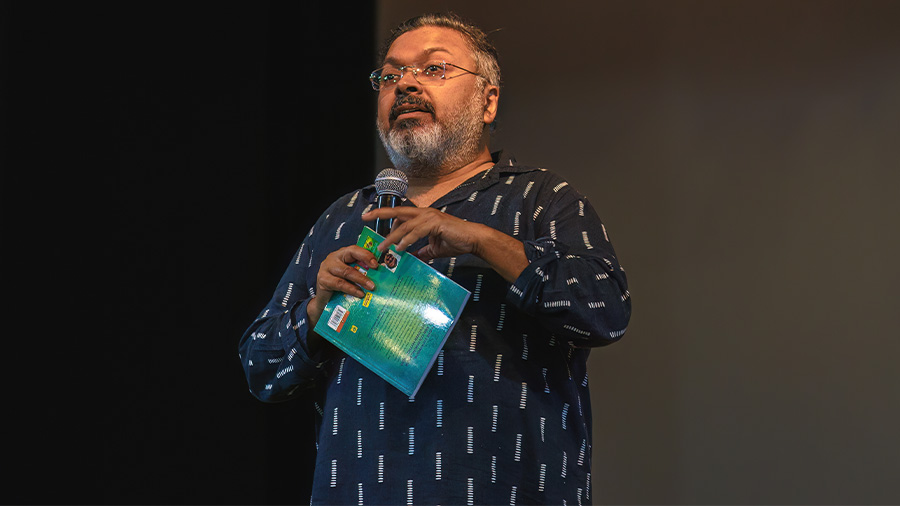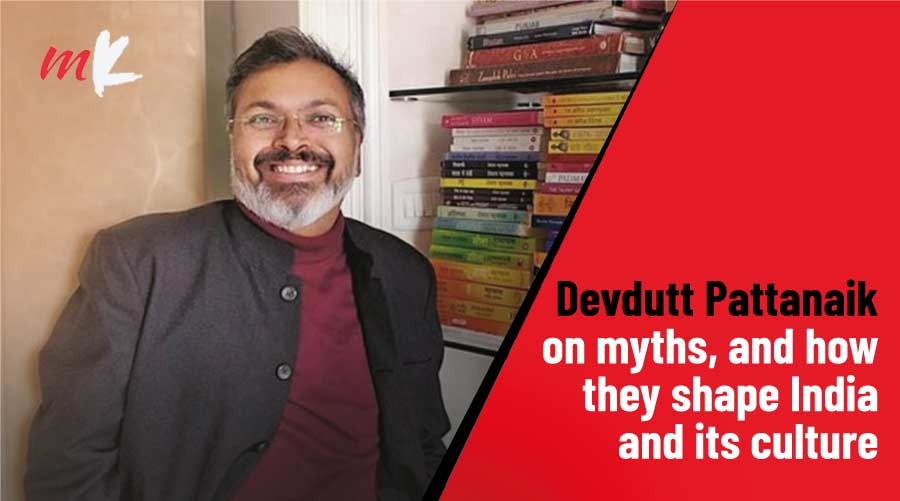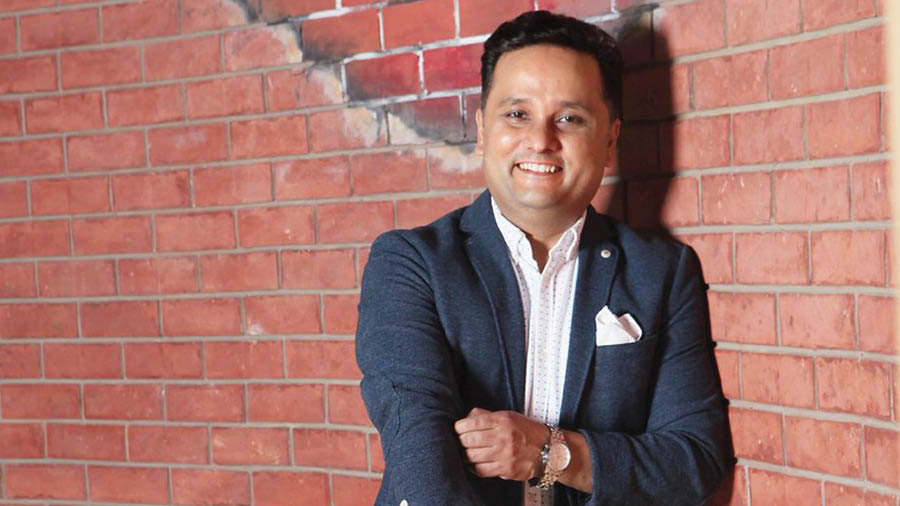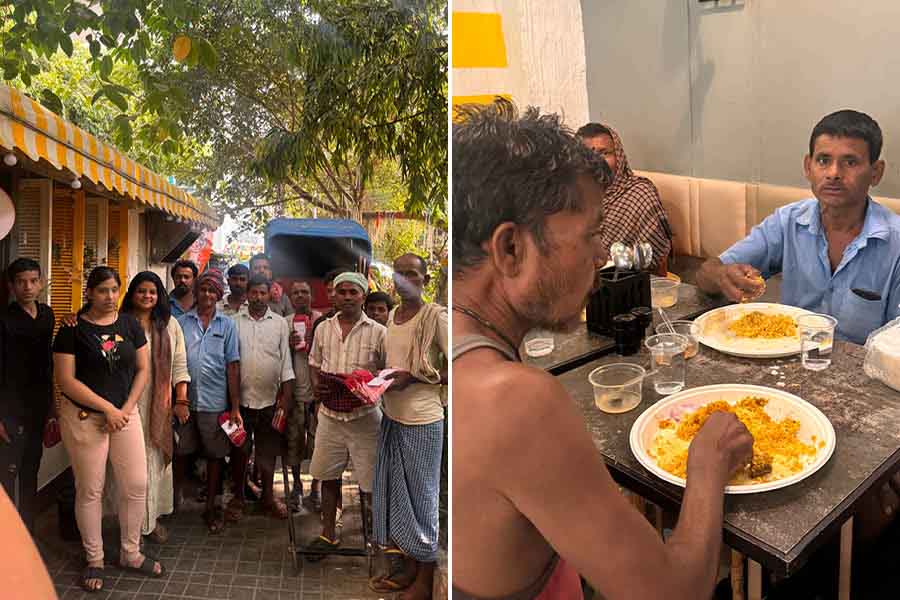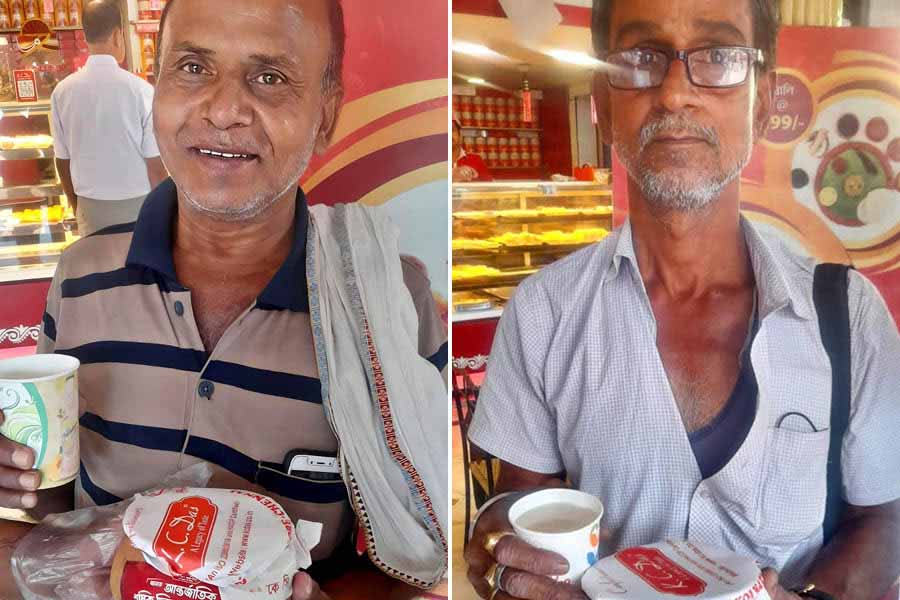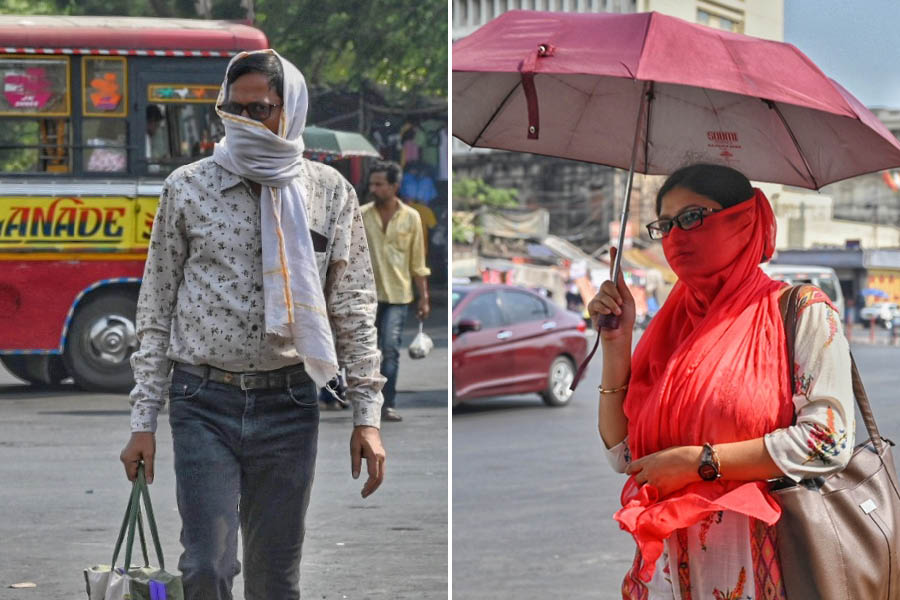After two days of extensive interactions with librarians, avid readers and students of The Heritage School as part of The Librarians Meet 2023, organised by Storyteller Bookstore in collaboration with Penguin Random House India, Devdutt Pattanaik sat down for an exclusive chat with My Kolkata on December 8.
Pattanaik had spent over an hour in an interactive session with students from classes three and four, talking about mythological texts such as the Ramayana and the Mahabharat as well as characters from Greek mythology. The main aim of the session was to excite the children about characters and storylines and use them as a medium to simplify serious concepts about life.
‘When people narrate or read out stories, they become salespersons of ideas, values and guidance’
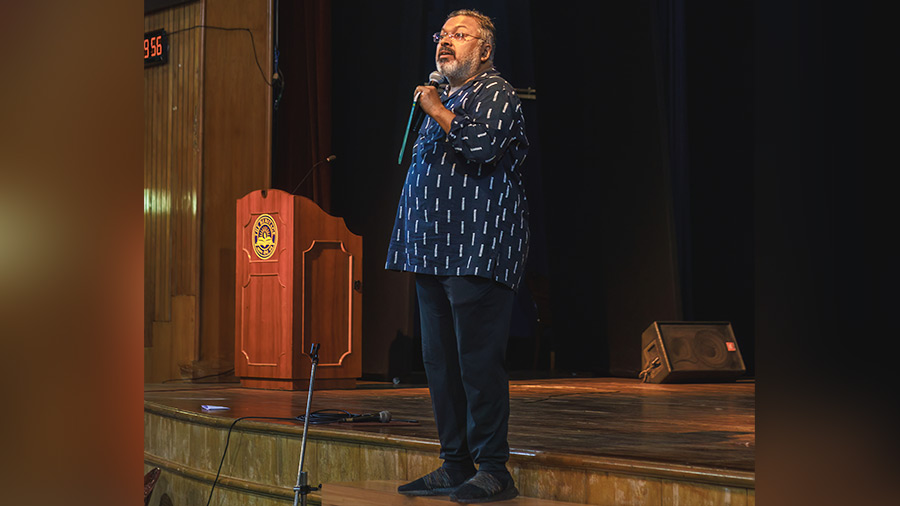
Pattanaik feels that some parents do not want their children to read
Pattanaik feels that as important as they may be, sessions and events like the one he was in can be effective only to a certain extent — the onus of getting children to read lies on the parents. “Reading helps to develop the neural networks in children, but I feel that some parents are against that happening with their kids. They don’t read themselves, discourage their children to read, and encourage them to get on to social media because they’re on social media themselves. Parents are too eager to download the software [they use] for their kids, which often does more harm than good,” says Pattanaik. He strongly feels that if parents are okay with their children being mediocre, then this is the way forward for them.
“When people narrate or read out stories, they become salespersons of ideas, values and guidance. One should never be a salesperson when telling a story,” claims Pattanaik. He feels it is pertinent to let the story evolve and let the children deal with the emotional triggers that the story generates in them. For example, Pattanaik says: “If we talk about the abduction of Sita in the Ramayana, one should ask the child what they think Sita is going through. This gives you space to talk about the story at an emotional level.” Rather than selling one’s political beliefs to a child, one should give space to the child to explore the emotional realities that such stories evoke, argues Pattanaik.
‘When someone is uneducated, they think old ideas are new inventions’
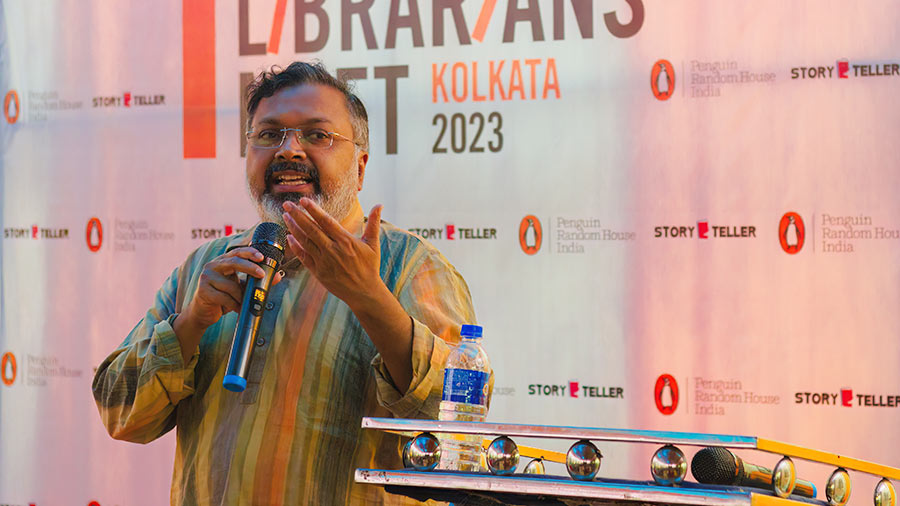
Pattanaik argues how today’s stories are not telling children how they should lead their lives
Pattanaik believes that incorporating issues like climate change, racial diversity, wildlife conservation, etc. into children’s books is a lazy activity because children cannot do anything about these. “Children are often at the receiving end of climate change, social inequalities and toxic nationalism, but aren’t aware of it. We should help them realise the complexity of the problem rather than simplifying it and creating a monster and telling them that they need to be the great hero who slays the monster,” explains Pattanaik.
Contrary to popular opinion, Pattanaik firmly states that he is not in the business of selling mythology, as “mythology shouldn’t be sold, especially to kids”. He feels children are self-absorbed like the people around them and have certain needs, wants and desires that need to be understood. Many children today are obsessed with violence, be it the kind shown in anime or Hollywood blockbusters, which is coated with the veneer of self-righteous justice.
“These stories are telling kids what they need to be and do, but they aren’t telling children how they should live their lives. This is a very dark form of storytelling. Even mythologists do it all the time. They confuse mythology fiction with mythology,” says Pattanaik. He adds that “mythology fiction” shows Sita as a violent woman (for resisting Ravana) and, therefore, modern. This equation of violence with modernity and/or feminism is not what mythology stands for. Nor is it what was written by Valmiki. “People don’t know the teachings of Pancham Ved or the Ramayana. So, when I write [about these teachings], they feel I’m inventing ideas. When someone is uneducated, they think old ideas are new inventions. They don’t realise that what I’m saying was said thousands of years ago,” says Pattanaik.
Before concluding, we ask Pattanaik which five books, according to him, should be a must-read for kids. With characteristic candour, Pattanaik replies: “ I’m confident about my books, not those of others. So, just read mine!”


